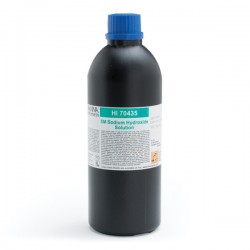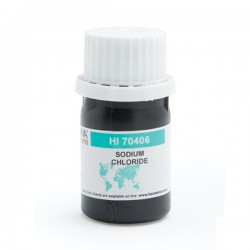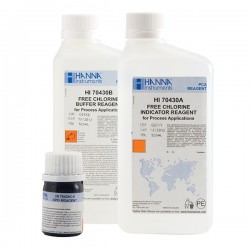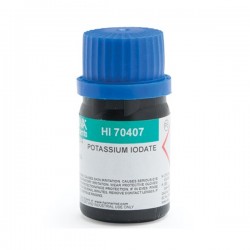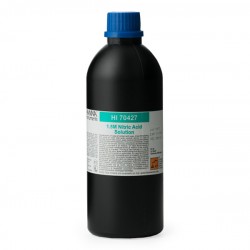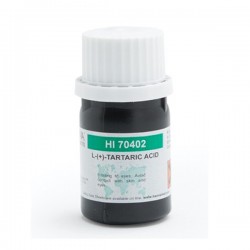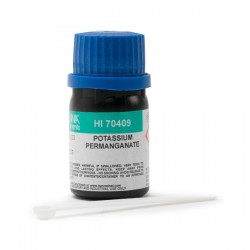

HI-720-25 Reagents for Calcium Hardness Colorimeter Checker HC
In Stock 4 Items available
HI-720-25
These reagents follow the Calmagite method in which the reaction between calcium and the reagent causes a violet tint in the sample.
The HI-720-25 are high-quality reagents that are pre-measured, allowing for users to achieve fast and accurate measurements with their Calcium Hardness Checker® HC. These reagents follow the Calmagite method in which the reaction between calcium and the reagent causes a violet tint in the sample. When the HI-720-25 reagents are added to the sample, the reaction will take place and the HI-720 will determine the concentration from the colour that is produced. The results will be displayed in ppm of calcium hardness as CaCO3. These reagents are designed to be used with samples that have an expected range of 0.00 to 2.70 ppm CaCO3.
Tip for an accurate measurement
It is important that the sample does not contain any debris.
Whenever the cuvette is placed into the measurement cell, it must be dry outside and completely free of fingerprints, oil or dirt. Wipe it thoroughly with HI-731318 or a lint-free cloth prior to insertion.
Shaking the cuvette can generate bubbles, causing higher readings. To obtain accurate measurements, remove such bubbles by swirling or by gently tapping the cuvette.
Do not let the reacted sample stand for too long after reagent is added, or accuracy will be lost.
After the reading, it is important to discard the sample immediately, otherwise the glass might become permanently stained.
Four steps. One click. Instant Readout.
1. ‘Zero’ the Checker®HC with your vial inside
2. Place a 10ml water sample into the vial and add your reagent
3. Place your vial into your Checker®HC
4. Press the button and read the results
Use HI-720-11 Calibration Check set for HI-720.
Read More
| Package | Sachets | |
| Quantity | 25 | |
| Method | Adaptation of the Standard Methods for the Examination of Water and Wastewater, 18th edition, Calmagite method. The reaction between calcium and reagents causes a reddish-violet tint in the sample. |



